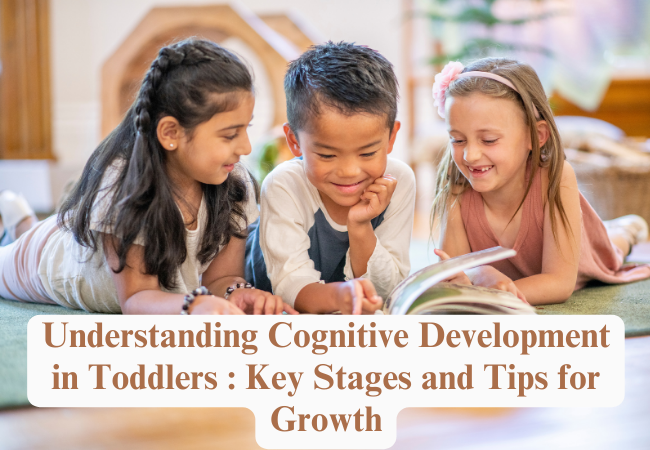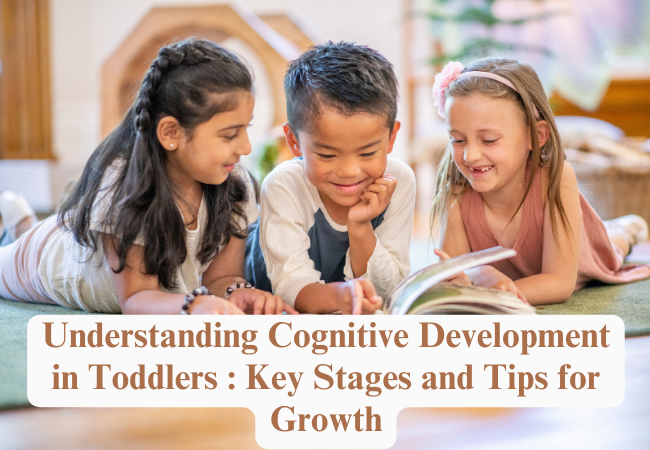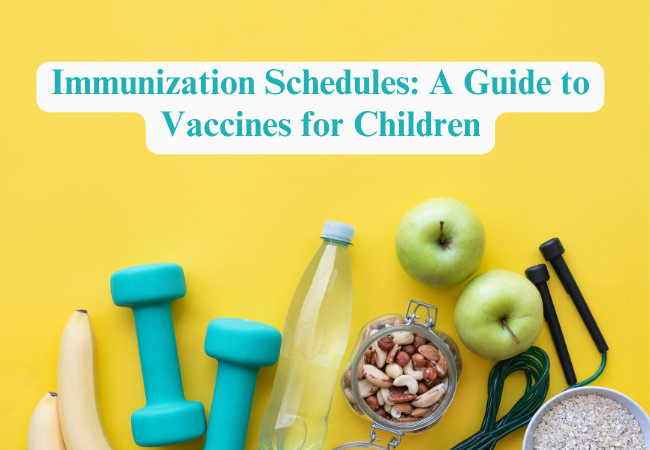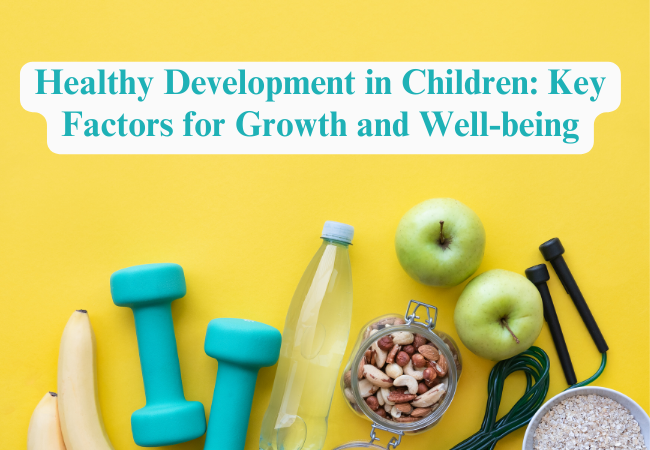Understanding Cognitive Development in Toddlers : Key Stages and Tips for Growth
Delve into the stages of cognitive development in toddlers with our comprehensive guide. Discover how toddlers learn, problem-solve, and grow their thinking skills, along with practical tips to support their cognitive growth.
Watching a toddler figure out the world around them is amazing. From solving simple puzzles to asking “why” about everything, toddlers’ minds are constantly growing and changing. This guide will help you understand how toddlers’ thinking skills develop and how you can support their cognitive growth.
What is Cognitive Development?

Cognitive development refers to how children think, explore, and figure things out. It’s the development of knowledge, skills, problem-solving, and dispositions, which help children to think about and understand the world around them.
For toddlers, this means learning about:
- Cause and effect
- Object permanence (knowing things exist even when out of sight)
- Symbolic and pretend play
- Problem-solving
- Memory
- Attention span
- Language use
Learn more about cognitive development from Zero to Three
Let’s explore the stages of cognitive development in toddlers and what you can expect at each stage.
12-18 Months: The Explorer Stage
At this stage, toddlers are like little scientists, constantly exploring their environment.
Key Developments:
- Understands simple cause and effect (like pushing a button to make a toy light up)
- Begins to use objects correctly (like using a spoon to eat)
- Starts to understand object permanence
- Imitates actions they’ve seen before
How to Support Cognitive Growth:
- Provide safe spaces for exploration
- Offer toys that respond to actions (like push-and-go cars)
- Play hide-and-seek games with objects
- Demonstrate how to use everyday items
Read more about supporting cognitive development in 1-year-olds
18-24 Months: The Problem Solver Stage
During this stage, toddlers start to think about problems before acting.
Key Developments:
- Begins to sort objects by shape or color
- Starts to engage in simple pretend play
- Can follow simple instructions
- Recognizes names of familiar people and objects
How to Support Cognitive Growth:
- Provide sorting toys and shape sorters
- Encourage pretend play with dolls or stuffed animals
- Give simple, two-step instructions
- Read picture books and name objects
Discover more about your toddler’s cognitive milestones
24-36 Months: The Imaginative Thinker Stage
This is when toddlers’ imaginations really take off, and their problem-solving skills become more advanced.
Key Developments:
- Engages in more complex pretend play
- Can complete simple puzzles
- Understands basic time concepts (like “now,” “later,” “soon”)
- Begins to understand simple comparisons (big/small, fast/slow)
- Asks lots of questions, especially “why?”
How to Support Cognitive Growth:
- Provide dress-up clothes and props for pretend play
- Offer simple jigsaw puzzles
- Use time-related words in everyday conversation
- Compare objects and explain differences
- Answer their questions patiently and encourage more
Learn more about cognitive development in 2-3 year olds
Tips to Boost Cognitive Development in Toddlers
Here are some general strategies to support your toddler’s cognitive growth:
- Encourage Exploration Let your toddler safely explore their environment. This hands-on experience is crucial for cognitive development.
- Talk and Read Together Narrate your day, read books, and engage in conversation. This helps develop language skills, which are closely tied to cognitive development.
- Provide Problem-Solving Opportunities Offer age-appropriate puzzles, building blocks, and other toys that encourage problem-solving.
- Support Pretend Play Provide props for imaginative play and join in. Pretend play helps develop abstract thinking skills.
- Introduce Basic Concepts Talk about colors, shapes, numbers, and letters in everyday situations.
- Offer Choices Letting your toddler make simple choices helps develop decision-making skills.
- Use Music and Movement Songs with actions and dance can help develop memory and sequencing skills.
- Limit Screen Time While some educational programs can be beneficial, too much screen time can hinder cognitive development. The American Academy of Pediatrics recommends no screen time for children under 18 months (except video chatting) and limited high-quality programming for older toddlers.
Read the AAP’s recommendations on screen time
When to Be Concerned
While every child develops at their own pace, there are some signs that might indicate a need for extra support. Talk to your pediatrician if your toddler:
- Doesn’t seem to understand simple instructions by 18 months
- Isn’t using at least 6 words by 18 months
- Doesn’t engage in pretend play by 24 months
- Can’t sort objects by shape or color by 36 months
- Loses skills they once had
Remember, these are general guidelines. If you have any concerns about your child’s cognitive development, it’s always best to consult with your pediatrician.
Learn more about developmental delays from the CDC
Conclusion
Cognitive development in toddlers is an exciting journey of discovery and growth. By understanding the stages of cognitive development and providing a supportive environment, you can help your toddler build the thinking skills they’ll use for a lifetime. Remember, every child develops at their own pace, and the most important thing is to provide love, support, and opportunities for learning and exploration.
Do you have any experiences or tips about supporting cognitive development in toddlers? We’d love to hear from you in the comments below!
For more information and guide, visit usaparentingtips.com







